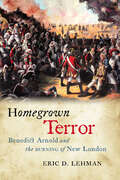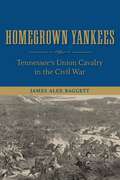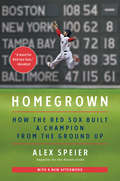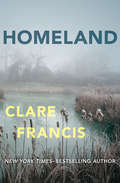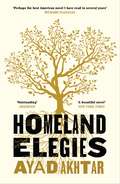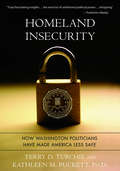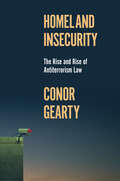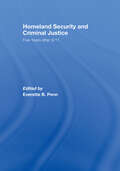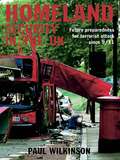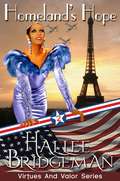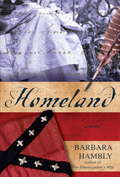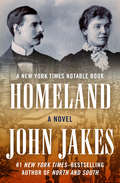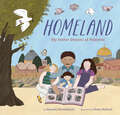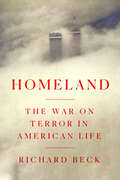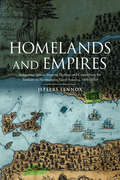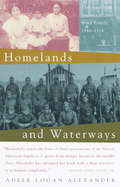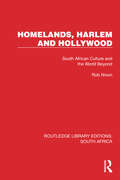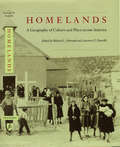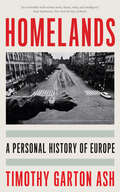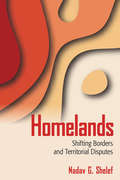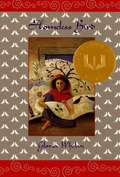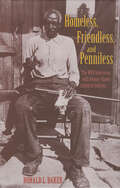- Table View
- List View
Homegrown Terror: Benedict Arnold and the Burning of New London (The Driftless Connecticut Series)
by Eric D. LehmanOn September 6, 1781, Connecticut native Benedict Arnold and a force of 1,600 British soldiers and loyalists took Fort Griswold and burnt New London to the ground. The brutality of the invasion galvanized the new nation, and "Remember New London!" would become a rallying cry for troops under General Lafayette. In Homegrown Terror, Eric D. Lehman chronicles the events leading up to the attack and highlights this key transformation in Arnold--the point where he went from betraying his comrades to massacring his neighbors and destroying their homes. This defining incident forever marked him as a symbol of evil, turning an antiheroic story about weakness of character and missed opportunity into one about the nature of treachery itself. Homegrown Terror draws upon a variety of perspectives, from the traitor himself to his former comrades like Jonathan Trumbull and Silas Deane, to the murdered Colonel Ledyard. Rethinking Benedict Arnold through the lens of this terrible episode, Lehman sheds light on the ethics of the dawning nation, and the way colonial America responded to betrayal and terror.
Homegrown Yankees: Tennessee's Union Cavalry in the Civil War
by James Alex BaggettOf all the states in the Confederacy, Tennessee was the most sectionally divided. East Tennesseans opposed secession at the ballot box in 1861, petitioned unsuccessfully for separate statehood, resisted the Confederate government, enlisted in Union militias, elected U.S. congressmen, and fled as refugees into Kentucky. These refugees formed Tennessee's first Union cavalry regiments during early 1862, followed shortly thereafter by others organized in Union-occupied Middle and West Tennessee. In Homegrown Yankees, the first book-length study of Union cavalry from a Confederate state, James Alex Baggett tells the remarkable story of Tennessee's loyal mounted regiments. Fourteen mounted regiments that fought primarily within the boundaries of the state and eight local units made up Tennessee's Union cavalry. Young, nonslaveholding farmers who opposed secession, the Confederacy, and the war -- from isolated villages east of Knoxville, the Cumberland Mountains, or the Tennessee River counties in the west -- filled the ranks. Most Tennesseans denounced these local bluecoats as renegades, turncoats, and Tories; accused them of betraying their people, their section, and their race; and held them in greater contempt than soldiers from the North.Though these homegrown Yankees participated in many battles -- including those in the Stones River, Tullahoma, Chickamauga, East Tennessee, Nashville, and Atlanta campaigns -- their story provides rare insights into what occurred between the battles. For them, military action primarily meant almost endless skirmishing with partisans, guerrillas, and bushwackers, as well as with the Rebel raiders of John Hunt Morgan, Joseph Wheeler, and Nathan Bedford Forrest, who frequently recruited and supplied themselves from behind enemy lines. Tennessee's Union cavalry scouted and foraged the countryside, guarded outposts and railroads, acted as couriers, supported the flanks of infantry, and raided the enemy. On occasion, especially during the Nashville campaign, they provided rapid pursuit of Confederate forces. They also helped protect fellow unionists from an aggressive pro-Confederate insurgency after 1862. Baggett vividly describes the deprivation, sickness, and loneliness of cavalrymen living on the war's periphery and traces how circumstances beyond their control -- such as terrain, transport, equipage, weaponry, public sentiment, and military policy -- affected their lives. He also explores their well-earned reputation for plundering -- misdeeds motivated by revenge, resentment, a lack of discipline, and the hard-war policy of the Union army. In the never-before-told story of these cavalrymen, Homegrown Yankees offers new insights into an unexplored facet of southern Unionism and provides an exciting new perspective on the Civil War in Tennessee.
Homegrown: How the Red Sox Built a Champion from the Ground Up
by Alex Speier“Alex Speier spins a compelling narrative about how great scouting and player development created a perennial contender in baseball’s toughest division, without losing sight of the people at the heart of his story.” — Keith LawThe captivating inside story of the historic 2018 Boston Red Sox, as told through the assembly and ascendancy of their talented young core—the culmination of nearly a decade of reporting from one of the most respected baseball writers in the country.The 2018 season was a coronation for the Boston Red Sox. The best team in Major League Baseball—indeed, one of the best teams ever—the Sox won 108 regular season games and then romped through the postseason, going 11-3 against the three next-strongest teams baseball had to offer.As Boston Globe baseball reporter Alex Speier reveals, the Sox’ success wasn’t a fluke—nor was it guaranteed. It was the result of careful, patient planning and shrewd decision-making that allowed Boston to develop a golden generation of prospects—and then build upon that talented core to assemble a juggernaut. Speier has covered the key players—Mookie Betts, Andrew Benintendi, Xander Bogaerts, Rafael Devers, Jackie Bradley Jr., and many others—since the beginning of their professional careers, as they rose through the minor leagues and ultimately became the heart of this historic championship squad. Drawing upon hundreds of interviews and years of reporting, Homegrown is the definitive look at the construction of an extraordinary team.It is a story that offers startling insights for baseball fans of any team, and anyone looking for the secret to building a successful organization. Why do many highly touted prospects fail, while others rise out of obscurity to become transcendent? How can franchises help their young talent, in whom they’ve often invested tens of millions of dollars, reach their full potential? And how can management balance long-term aims with the constant pressure to win now?Part insider’s account of one of the greatest baseball teams ever, part meditation on how to build a winner, Homegrown offers an illuminating look into how the best of the best are built.
Homeland
by Clare FrancisIn this &“thoughtful, deeply atmospheric novel&” by the author of Wolf Winter, a Polish refugee faces suspicion after a death in rural postwar England (Daily Mail). After World War II ends, soldiers are pouring back into Britain, and in 1946, the country is on the brink of the harshest winter in a hundred years. Blizzards rage and everything is in short supply: jobs, coal, food. In the Somerset wetlands, a Polish veteran named Wladyslaw Malinowski seeks work as a laborer. The soldiers of the Second Polish Corps are reluctant to leave, and many of the locals view them with uncertainty, but Malinowski manages to find employment on a farm. He also finds a potential romance in the local schoolmistress, Stella. But when murder rocks the small community, suspicion falls on the outsider. From the international bestselling author of A Dark Devotion and Betrayal, Homeland is an insightful look at how hardship and social upheaval can shape—or shatter—everyday lives, &“a very fine novel indeed&” (The Independent).
Homeland
by Dale Maharidge Michael WilliamsonHomeland is Pulitzer Prize winning author Maharidge's biggest and most ambitious book yet, weaving together the disparate and contradictory strands of contemporary American society-common decency alongside race rage, the range of dissenting voices, and the roots of discontent that defy political affiliation. Here are American families who can no longer pay their medical bills, who've lost high-wage-earning jobs to NAFTA. And here are white supremacists who claim common ground with progressives. Maharidge's approach is rigorously historical, creating a tapestry of today as it is lived in America, a self-portrait that is shockingly different from what we're used to seeing and yet which rings of truth.
Homeland Elegies: A Barack Obama Favourite Book (Planet Omar Ser.)
by Ayad AkhtarAN ECONOMIST, NEW YORK TIMES AND WASHINGTON POST BOOK OF THE YEAR'Outstanding... it is hard to convey the breadth and brilliance of this work' Observer'A beautiful novel about an American son and his immigrant father that has echoes of THE GREAT GATSBY' New York TimesA deeply personal novel of identity and belonging in a nation coming apart at the seams, HOMELAND ELEGIES blends fact and fiction to tell an epic story of belonging and dispossession in the world that 9/11 made. Part family drama, part satire, part picaresque, at its heart it is the story of a father and son, and the country they call home.Ranging from the heartland towns of America to palatial suites in Europe to guerrilla lookouts in the mountains of Afghanistan, Akhtar forges a narrative voice that is original as it is exuberantly entertaining. This is a world in which debt has ruined countless lives and the gods of finance rule, where immigrants live in fear and the unhealed wounds of 9/11 continue to wreak havoc. HOMELAND ELEGIES is a novel written in love and anger, which spares no one, least of all the author himself.
Homeland Insecurity: How Washington Politicians Have Made America Less Safe
by Terry Turchie Dr Kathleen PuckettIn America today there appears to be something wrong. Politicians no longer seem to have the public interest at heart, and instead are more focused on maintaining a balance of power. In Homeland Insecurity, Washington insiders former FBI Official Terry Turchie and FBI clinical psychologist Dr. Kathleen Puckett lead readers on a detailed exploration of how the politics of power were born, and have continued to endure, in the highest offices of the American government.
Homeland Insecurity: The Rise and Rise of Global Anti-Terrorism Law (History of Violence)
by Conor GeartyIn the decades following the 9/11 attacks, complex webs of anti-terrorism laws have come into play across the world, promising to protect ordinary citizens from bombings, hijackings and other forms of mass violence. But are we really any safer? Has freedom been secured by active deployment of state power, or fatally undermined? In this groundbreaking new book, Conor Gearty unpacks the history of global anti-terrorism law, explaining not only how these regulations came about, but also the untold damage they have wrought upon freedom and human rights. Ranging from the age of colonialism to the Cold War, through the perennial crises in the Middle East to the exponential growth of terrorism discourse compressed into the first two decades of the 21st century, the coercion these laws embody is here to stay. The ‘War on Terror’ was something that colonial and neo-colonial liberal democracies had always been doing—and something that is not going away. Anti-terrorism law no longer requires terrorism to survive. Wide-ranging, elegant and with a perceptive analytical sting, this book is essential reading for anyone seeking to understand the deep origins of terrorism and counter-terrorism, and how these concepts fundamentally shape the world we live in.
Homeland Security and Criminal Justice: Five Years After 9/11
by Everette B. PennNo event has shaped international events of recent years more than the terrorist attacks of September 11, 2001. Tragically, less than four years later, Hurricane Katrina devastated the Gulf Coast. In less than five years, the United States has experienced its worst terrorist attack and worst natural disaster, both in terms of the number of lives lost and in the costs needed for reconstruction. Both events have clearly indicated that there are tremendous threats to the security and well-being of Americans in their own country. Furthermore, these events have demonstrated the importance of criminal-justice agencies who are the first responders to threats to the United States. Since the threats of further terrorist attacks, natural disasters, epidemics, and cybercrime continue to lurk as potential dangers to the United States homeland, the American Criminal Justice System must be committed to mitigating, preparing for, responding to, and recovering from these tragic events. In addition, its commitment must be steadfast and ubiquitous. This highly topical book analyzes the nexus of homeland security to the discipline of criminal justice by addressing, in depth, issues and challenges facing criminal-justice students, practitioners, and faculty in the burgeoning field of homeland security.This book was previously published as a special issue of Criminal Justice Studies.
Homeland Security in the UK: Future Preparedness for Terrorist Attack since 9/11 (Political Violence)
by Paul WilkinsonThis book is a detailed examination of whether domestic security measures are striking an appropriate balance between homeland security and civil liberties in the post-9/11 era. Professor Paul Wilkinson and the other contributors assess the nature of UK responses to terrorism by key public and private-sector bodies, highlighting how these organizations can prevent, pre-empt, counter and manage terrorist attacks by using a matrix of factors such as types of terrorist networks, tactics and targets. The volume also compares and contrasts the UK's response with cognate states elsewhere in the EU and with the USA. While improved intelligence has helped prevent a major Al Qaeda attack, the authors conclude that there is still a ‘major question mark’ over whether the country is adequately resourced to deal with an emergency situation, particularly in major cities other than London. The book also confirms that while the UK faces a ‘real and serious’ threat of terrorist attack by Al Qaeda, it is better prepared for an attack than other EU member states. Homeland Security in the UK will be essential reading for all students of terrorism studies, security studies and politics, as well as by professional practitioners and well-informed general readers.
Homeland's Hope, a Novella: Virtues and Valor #2
by Hallee BridgemanStage and screen legend VIRGINIA BENOIT performs for standing room only crowds in her adopted home of France. When the Nazis roll into Paris, she flees to Casablanca, taking the heart of an enemy Colonel with her. While in there, Virginia devises a plan to use her position, talent, and influence with the high ranking Axis officer to aid the Allied cause. Virginia joins the Virtues team, assigned the code-name HOPE. Her keen mind trains in the craft of espionage. After staging a rift with the US, she returns to Paris, hiding undercover in plain sight, and spies on the enemy. All is well until the Third Reich imprisons the Virtues wireless operator, code named Temperance. As the Virtues engineer a plan to rescue Temperance from the Gestapo's clutches, Virginia takes to the stage to play her part in the daring mission. Will the murderous racism of the Nazi High Command prevent her from fulfilling her duties? HOMELAND'S HOPE is part two of seven serialized novellas entitled the Virtues and Valor series.
Homeland: A Novel
by Barbara HamblyThose who lovedCold Mountainor Geraldine Brooks’sMarchwill embrace and long remember this spellbinding novel of two remarkable women torn apart by conflict, sustained by literature and art, united by friendship and hope. As brother turns against brother in the bloodbath of the Civil War, two young women sacrifice everything but their friendship. Susanna Ashford is the Southerner, living on a plantation surrounded by scarred and blood-soaked battlefields. Cora Poole is the Northerner, on an isolated Maine island, her beloved husband fighting for the Confederacy. Through the letters the two women exchange, they speak of the ordeal of a familiar world torn apart by tragedy. And yet their unique friendship will help mend the fabric of a ravaged nation. The two women write about books and art, about loss and longing, about their future and the future of their country. About love. About being a woman in nineteenth-century America. About the triumphant resilience of the human spirit. Their voices and their stories are delineated in indomitable prose by an award-winning writer who captures in intimate detail a singular moment in time. InHomeland,Barbara Hambly takes readers on a unique odyssey across a landscape treacherous with hardship and hatred. She paints a passionate masterpiece of a friendship that not only transforms our understanding of the most heart-wrenching era of American history but celebrates the power of women to change their world.
Homeland: A Novel
by John JakesFrom the #1 New York Times–bestselling author of North and South: The first in a saga about a German immigrant and his family&’s rise in 20th-century America. The tide of the twentieth century is rising upon the world, and on its crest rides the Crown family. Young Pauli Kroner, freshly arrived in America from the streets of Berlin, makes his way to the mansion of his millionaire uncle in Chicago, looking to fulfill his dreams. His uncle, Joe Crown, is a self-made brewery tycoon who rules his domain with an iron hand—especially when it comes to his own family of defiantly rebellious children and a wife yearning for her own liberation. In this new world, Pauli will rise as his own man and find his destiny in the early days of motion pictures. Surrounded by relations close and distant, proud and vengeful, each struggling to find themselves at the dawn of a new era, he will witness and experience the violence of the Pullman Strike, and find love in the arms of a woman who can never be his as he follows the march of history, intertwined with such figures as the audacious Theodore Roosevelt, the ruthless Thomas Edison, the fading western icon Buffalo Bill, and many more. Named a New York Times Notable Book, Homeland is a &“first-rate historical . . . chock-full of fascinating period detail, [Jakes&’s] captivating story brings to life the sounds, smells and tastes of turn-of-the-century America in a manner comparable to Michener&’s Hawaii and Doctorow&’s Ragtime&” (Publishers Weekly). This ebook features an illustrated biography of John Jakes including rare images from the author&’s personal collection.
Homeland: My Father Dreams of Palestine
by Hannah MoushabeckAs bedtime approaches, three young girls eagerly await the return of their father who tells them stories of a faraway homeland—Palestine. Through their father's memories, the Old City of Jerusalem comes to life: the sounds of juice vendors beating rhythms with brass cups, the smell of argileh drifting through windows, and the sight of doves flapping their wings toward home. These daughters of the diaspora feel love for a place they have never been, a home they cannot visit. But, as their father’s story comes to an end, they know that through his memories, they will always return. A Palestinian family celebrates the stories of their homeland in this moving autobiographical picture book debut by Hannah Moushabeck. With heartfelt illustrations by Reem Madooh, this story is a love letter to home, to family, and to the persisting hope of people that transcends borders.
Homeland: The War on Terror in American Life
by Richard BeckA groundbreaking history of how the decades-long war on terror changed virtually every aspect of American life, from the erosion of citizenship down to the cars we bought and TV we watched—by an acclaimed n+1 writer&“Richard Beck, like many people alive today, has spent his adult life living in the shadow of 9/11, and Homeland is a devastating inquiry into the new world that day created.&”—Greg Grandin, Pulitzer Prize–winning author of The End of the Myth: From the Frontier to the Border Wall in the Mind of AmericaFor twenty years after September 11, the war on terror was simultaneously everywhere and nowhere. With all of the military violence occurring overseas even as the threat of sudden mass death permeated life at home, Americans found themselves living in two worlds at the same time. In one of them, soldiers fought overseas so that nothing at home would have to change at all. In the other, life in the United States took on all kinds of unfamiliar shapes, changing people&’s sense of themselves, their neighbors, and the strangers they sat next to on airplanes. In Homeland, Richard Beck delivers a gripping exploration of how much the war changed life in the United States and explains why there is no going back. Though much has been made of the damage that Donald Trump did to the American political system, Beck argues that it was the war on terror that made Trump&’s presidency possible, fueling and exacerbating a series of crises that all came to a head with his rise to power. Homeland brilliantly isolates and explores four key issues: the militarism that swept through American politics and culture; the racism and xenophobia that boiled over in much of the country; an economic crisis that, Beck convincingly argues, connects the endurance of the war on terror to at least the end of the Second World War; and a lack of accountability that produced our &“impunity culture&”—the government-wide inability or refusal to face consequences that has transformed how the U.S. government relates to the people it governs. To see American life through the lens of Homeland&’s sweeping argument is to understand the roots of our current condition. In its startling analysis of how the war on terror hollowed out the very idea of citizenship in the United States, Beck gives the most compelling explanation yet offered for the ongoing disintegration of America&’s social, political, and cultural fabric.
Homelands and Empires: Indigenous Spaces, Imperial Fictions, and Competition for Territory in Northeastern North America, 1690–1763
by Jeffers LennoxThe period from 1690 to 1763 was a time of intense territorial competition during which Indigenous peoples remained a dominant force. British Nova Scotia and French Acadia were imaginary places that administrators hoped to graft over the ancestral homelands of the Mi’kmaq, Wulstukwiuk, Passamaquoddy, and Abenaki peoples. Homelands and Empires is the inaugural volume in the University of Toronto Press’s Studies in Atlantic Canada History. In this deeply researched and engagingly argued work, Jeffers Lennox reconfigures our general understanding of how Indigenous peoples, imperial forces, and settlers competed for space in northeastern North America before the British conquest in 1763. Lennox’s judicious investigation of official correspondence, treaties, newspapers and magazines, diaries, and maps reveals a locally developed system of accommodation that promoted peaceful interactions but enabled violent reprisals when agreements were broken. This outstanding contribution to scholarship on early North America questions the nature and practice of imperial expansion in the face of Indigenous territorial strength.
Homelands and Waterways: The American Journey of the Bond Family, 1846-1926
by Adele Logan AlexanderThis monumental history traces the rise of a resolute African American family (the author's own) from privation to the middle class. In doing so, it explodes the stereotypes that have shaped and distorted our thinking about African Americans--both in slavery and in freedom. Beginning with John Robert Bond, who emigrated from England to fight in the Union Army during the Civil War and married a recently freed slave, Alexander shows three generations of Bonds as they take chances and break new ground. From Victorian England to antebellum Virginia, from Herman Melville's New England to the Jim Crow South, from urban race riots to the battlefields of World War I, this fascinating chronicle sheds new light on eighty crucial years in our nation's troubled history. The Bond family's rise from slavery, their interaction with prominent figures such as W. E. B. DuBois and Booker T. Washington, and their eventual, uneasy realization of the American dream shed a great deal of light on our nation's troubled heritage.
Homelands, Harlem and Hollywood: South African Culture and the World Beyond (Routledge Library Editions: South Africa #15)
by Rob NixonOriginally published in 1994, Homelands, Harlem & Hollywood examines the anti-colonialist struggle against apartheid, and the ways in which American and South African culture have been fascinated with and influenced by one another. Rob Nixon’s wide-ranging analysis looks at Hollywood representations of the struggle for liberation, the impact of the Harlem Renaissance on the Sophiatown writers, the banning and censorship of television under apartheid, Mandela and messianic politics, the sports and cultural boycotts, ethnic nationalism, and the culture of violence. Nixon concludes with an investigation of how the collapse of communism and anti-communism and the rise of ethnic cleansing in Eastern Europe and the former Soviet Union had powerful implications for the shape of post-apartheid South Africa.
Homelands: A Geography of Culture and Place across America (Creating the North American Landscape)
by Richard L. Nostrand Lawrence E. EstavilleWhat does it mean to be from somewhere? If most people in the United States are "from some place else" what is an American homeland? In answering these questions, the contributors to Homelands: A Geography of Culture and Place across America offer a geographical vision of territory and the formation of discrete communities in the U.S. today. Homelands discusses groups such as the Yankees in New England, Old Order Amish in Ohio, African Americans in the plantation South, Navajos in the Southwest, Russians in California, and several other peoples and places. Homelands explores the connection of people and place by showing how aspects of several different North American groups found their niche and created a homeland. A collection of fifteen essays, Homelands is an innovative look at geographical concepts in community settings. It is also an exploration of the academic work taking place about homelands and their people, of how factors such as culture, settlement, and cartographic concepts come together in American sociology. There is much not only to study but also to celebrate about American homelands. As the editors state, "Underlying today's pluralistic society are homelands—large and small, strong and weak—that endure in some way. The mosaic of homelands to which people bonded in greater or lesser degrees, affirms in a holistic way America's diversity, its pluralistic society." The authors depict the cultural effects of immigrant settlement. The conviction that people need to participate in the life of the homeland to achieve their own self realization, within the traditions and comforts of that community. Homelands gives us a new map of the United States, a map drawn with people's lives and the land that is their home.
Homelands: A Personal History of Europe
by Timothy Garton AshDrawing on half a century of firsthand experience and exemplary scholarship, Timothy Garton Ash tells the story of postwar Europe’s triumphs and tragedies Winner of the 2024 Lionel Gelber Prize • A Financial Times Best Book of 2023 “An irresistibly well-written book, fluent, witty, and intelligent.”—Neal Acherson, New York Review of Books Timothy Garton Ash, Europe’s “historian of the present,” has been “breathing Europe” for the last half century. In Homelands he embarks on a journey in time and space around the postwar continent, drawing on his own notes from many great events, giving vivid firsthand accounts of its leading actors, revisiting the places where its history was made, and recalling its triumphs and tragedies through their imprint on the present. Garton Ash offers an account of events as seen from the ground—history illustrated by memoir. He describes how Europe emerged from wartime devastation to rebuild, to triumph with the fall of the Berlin Wall, to democratize and unite. And then to falter. It is a singular history of a period of unprecedented progress along with a clear-eyed account of how so much went wrong, from the financial crisis of 2008 to the war in Ukraine. From the pen of someone who, in spite of Brexit, emphatically describes himself as an English European, this is both a tour d’horizon and a tour de force.
Homelands: Shifting Borders and Territorial Disputes
by Nadav G. ShelefWhy are some territorial partitions accepted as the appropriate borders of a nation's homeland, whereas in other places conflict continues despite or even because of division of territory? In Homelands, Nadav G. Shelef develops a theory of what homelands are that acknowledges both their importance in domestic and international politics and their change over time. These changes, he argues, driven by domestic political competition and help explain the variation in whether partitions resolve conflict.Homelands also provides systematic, comparable data about the homeland status of lost territory over time that allow it to bridge the persistent gap between constructivist theories of nationalism and positivist empirical analyses of international relations.
Homeless
by Ella HowardThe homeless have the legal right to exist in modern American cities, yet antihomeless ordinances deny them access to many public spaces. How did previous generations of urban dwellers deal with the tensions between the rights of the homeless and those of other city residents? Ella Howard answers this question by tracing the history of skid rows from their rise in the late nineteenth century to their eradication in the mid-twentieth century.Focusing on New York's infamous Bowery, Homeless analyzes the efforts of politicians, charity administrators, social workers, urban planners, and social scientists as they grappled with the problem of homelessness. The development of the Bowery from a respectable entertainment district to the nation's most infamous skid row offers a lens through which to understand national trends of homelessness and the complex relationship between poverty and place. Maintained by cities across the country as a type of informal urban welfare, skid rows anchored the homeless to a specific neighborhood, offering inhabitants places to eat, drink, sleep, and find work while keeping them comfortably removed from the urban middle classes. This separation of the homeless from the core of city life fostered simplistic and often inaccurate understandings of their plight. Most efforts to assist them centered on reforming their behavior rather than addressing structural economic concerns.By midcentury, as city centers became more valuable, urban renewal projects and waves of gentrification destroyed skid rows and with them the public housing and social services they offered. With nowhere to go, the poor scattered across the urban landscape into public spaces, only to confront laws that effectively criminalized behavior associated with abject poverty. Richly detailed, Homeless lends insight into the meaning of homelessness and poverty in twentieth-century America and offers us a new perspective on the modern welfare system.
Homeless Bird
by Gloria WhelanLeaving Home...forever. Like many girls her age in India, thirteen-year-old Koly is getting married. When she discovers that the husband her parents have chosen for her is sickly boy with wicked parents, Koly wishes she could flee. According to tradition, though, she has no choice. On her wedding day, Koly's fate is sealed. In the wake of her marriage, however, Koly's life takes an unexpected turn, and she finds herself alone in a strange city of white-sari-clad windows. Her only choice seems to be to shed her name and her future and join the hopeless hordes who chant for food. Even then, cast out in a current of time-worn tradition, this rare young woman sets out to forge her own exceptional future. And a life, like a beautiful tapestry, comes together for Koly-- one stitch at a time. <P><P> 2000 National Book Award Winner
Homeless Bird
by Gloria WhelanLeaving Home...forever. Like many girls her age in India, thirteen-year-old Koly is getting married. When she discovers that the husband her parents have chosen for her is sickly boy with wicked parents, Koly wishes she could flee. According to tradition, though, she has no choice. On her wedding day, Koly's fate is sealed. In the wake of her marriage, however, Koly's life takes an unexpected turn, and she finds herself alone in a strange city of white-sari-clad windows. Her only choice seems to be to shed her name and her future and join the hopeless hordes who chant for food. Even then, cast out in a current of time-worn tradition, this rare young woman sets out to forge her own exceptional future. And a life, like a beautiful tapestry, comes together for Koly-- one stitch at a time. Books for the Teen Age 2001 (NYPL) and 2000 National Book Award Winner
Homeless, Friendless, and Penniless: The WPA Interviews with Former Slaves Living in Indiana
by Ronald L. BakerHomeless, Friendless, and PennilessThe WPA Interviews with Former Slaves Living in IndianaRonald L. BakerLives of former slaves in their own words, published for the first time.Based on a collection of interviews conducted in the late 1930s, Homeless, Friendless, and Penniless is an invaluable record of the lives and thoughts of former slaves who moved to Indiana after the Civil War and made significant contributions to the evolving patchwork of Hoosier culture.The Indiana slave narratives provide a glimpse of slavery as remembered by those who experienced it, preserving insiders' views of a tragic chapter in American history. Though they were living in Indiana at the time of the interviews, these African Americans been enslaved in 11 different states from the Carolinas to Louisiana. The interviews deal with life and work on the plantation; the treatment of slaves; escaping from slavery; education, religion, and slave folklore; and recollections of the Civil War. Just as important, the interviews reveal how former slaves fared in Indiana after the Civil War and during the Depression. Some became ministers, a few became educators, and one became a physician; but many lived in poverty and survived on Christian faith and small government pensions.Ronald L. Baker, Chairperson and Professor of English at Indiana State University, is author of many books, including Hoosier Folk Legends and From Needmore to Prosperity: Hoosier Place Names in Folklore and History (both from Indiana University Press. He is co-author of Indiana Place Names with Marvin Carmony and editor of The Folklore Historian, the journal of the Folklore and History Section of the American Folklore Society.ContentsPart One: A Folk History of Slavery Background of the WPA Interviews Presentation of Material Living and Working on the Plantation The Treatment of Slaves Escaping from Slavery Education Religion Folklore Recollections of the Civil War Living and Working after the Civil War Value of the WPA Interviews AcknowledgmentsPart Two: The WPA Interviews with Former Slaves [134 entries]Appendices, including Thematic Index
